With the right gear, lighting skills and a few posing ideas a boudoir shoot needn’t be a daunting prospect.

Boudoir photography is big business at the moment and if you’re into portraits, it’s a useful skill to master. You’ll find lots of technical advice over the next couple of pages but first off it’s worth thinking about the style. Glamour has its place, but it’s not here. It’s not just about hiding the rude bits – the odd nipple on show isn’t the issue. It’s more about a shooting style that celebrates the shape of the body without objectifying the subject. There’s an element of empowerment to boudoir, which is why, more often than not, it’s women – rather than husbands or partners – who willingly seek out and pay for this type of photo shoot. It’s a boost for the ego, and a chance for them to say ‘I can look like this if I want to’.
So how do we get this sense of empowerment across in the photos? Firstly we talk to our model and find out the kind of looks and styles that appeal to her to give us an idea of what she wants to show – or hide – and what she considers her best assets. The best portrait photographers learn how to emphasize a person’s most interesting or alluring assets and play down the unflattering parts. With boudoir, this is vital. On the technical side, there are choices that we can make to take our shots out of the Reader’s Wives category and into the realms of the pros…
Key skills Enter the boudoir
Approach a boudoir shoot with the right gear and camera settings for great shots in challenging conditions
01 Camera settings
There’s no stock setting for all scenarios, but most of our shots here were taken in Manual mode with the aperture around f/2.8 and shutter speeds around 1/100 sec. We then adjusted ISO to perfect the exposure, with the sensitivity ranging from ISO400 to 1600.
This story is from the December 2016 edition of PhotoPlus : The Canon Magazine.
Start your 7-day Magzter GOLD free trial to access thousands of curated premium stories, and 9,000+ magazines and newspapers.
Already a subscriber ? Sign In
This story is from the December 2016 edition of PhotoPlus : The Canon Magazine.
Start your 7-day Magzter GOLD free trial to access thousands of curated premium stories, and 9,000+ magazines and newspapers.
Already a subscriber? Sign In
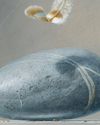
The Art of Copying Art - James Paterson shows you how to use your Canon gear to capture artwork and paintings the right way with simple camera and lighting skills
Whether you want to capture a painting like the above, digitise old prints or reproduce any kind of canvas, there's real skill in capturing artwork with your camera. Not only do you need the colours to be accurate, you also need to master the spread, angle and quality of the light to minimise glare and show the work at its best.This painting by the artist Bryan Hanlon has a wonderfully subtle colour palette. To reproduce the painting in print and digital form, it needs to be captured in the right way.
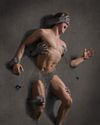
Fright night
Canon photographer and digital artist Alexander loves to craft incredible fantasy scenes with a spooky horror twist
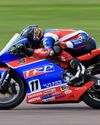
Sharpen your shots with DPP
Sharpening a digital image also increases contrast at the edge of details

CANON ImagePrograf PRO-1100
Deeper blacks, better bronzing, greater lifespan and 5G Wi-Fi -Canon's new printer is full of new tech, says
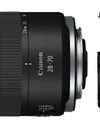
Canon's new 'kit lens' is actually a half-price f/2.8 trinity lens!
The Canon RF 28-70mm F2.8 IS STM lacks a red ring, but borrows premium features from its L-series siblings
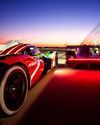
DREW GIBSON
Pro motorsports photographer Drew on why he hasn't (yet) switched to Canon's mirrorless system, why old-school techniques can be the most reliable, and the lessons learned from more than a decade shooting the world's biggest car brands
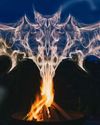
Up in smoke
Make a smoky shape in Affinity Photo and get to grips with the amazing Liquify Persona under the guidance of James Paterson
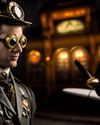
Expand your creativity with Generative Fill
Photoshop's Al-powered feature brings revolutionary new tools to image editing. James Paterson reveals all...
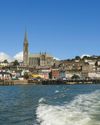
Turn your images into vintage postcards
Wish you were here? Sean McCormack explains how you can give your summer photographs a vintage postcard look
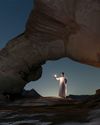
The Angel Malibu
Light painting an American movie producer in the Wadi Rum Desert in Jordan was a highly unlikely evening out for David!